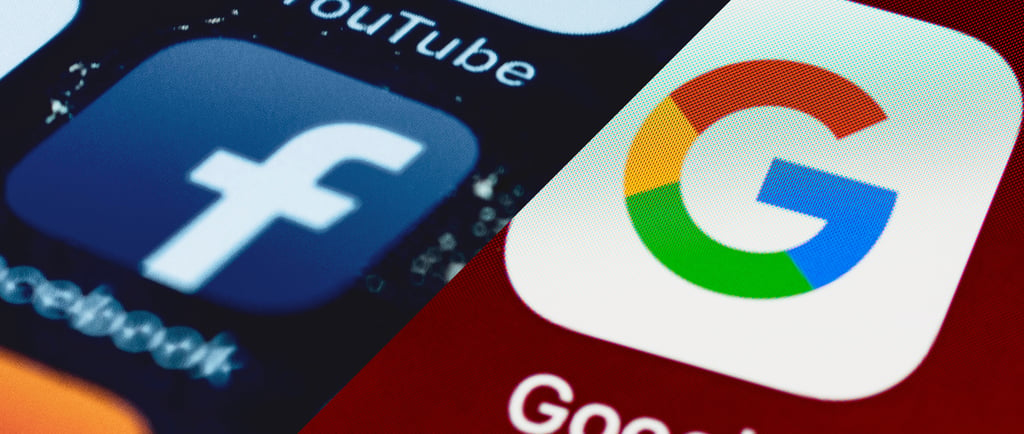Facebook Ads vs Google Ads: Which Reigns Supreme for Your Digital Marketing?
In the dynamic world of paid media advertising, Facebook Ads and Google Ads stand out as titans, each wielding immense power to reach potential customers. For business owners, especially SMEs, the question isn't usually whether to use them, but rather which platform deserves the bigger slice of their marketing budget.
PAID MEDIA ADVERTISING
G! Marketing
5/17/20253 min read


The truth? There's no single "better" option. Facebook Ads and Google Ads excel in different areas, targeting users at distinct stages of their customer journey. Understanding their unique strengths is crucial to crafting a winning digital marketing strategy.
Google Ads: Capturing Intent
Think about your own online behavior. When you have a specific need or question, where do you turn? Chances are, Google is your first stop. This is where Google Ads shines. It allows you to place your ads in front of users actively searching for keywords related to your products or services.
Imagine this scenario: Someone types "best seafood restaurant near me" into Google. If you own a seafood restaurant and are running Google Ads for those keywords, your restaurant can appear right at the top of the search results. This is incredibly powerful because you're reaching customers with a high purchase intent – they're actively looking for what you offer.
Key Strengths of Google Ads:
High Purchase Intent: Targets users actively searching for specific solutions.
Vast Reach: Leverages Google's massive search engine user base.
Measurable Results: Offers detailed analytics on campaign performance.
Various Ad Formats: Includes search ads, display ads, video ads (YouTube), and shopping ads.
Location Targeting: Highly effective for reaching customers in specific geographic areas.
Facebook Ads: Discovering Needs Through Social Media
While Google caters to active searchers, Facebook Ads excels at reaching users based on their interests, demographics, behaviors, and connections on social media platforms like Facebook and Instagram. It's about finding potential customers who might not even be actively looking for your product or service yet.
Consider a local boutique: They might use Facebook Ads to target women in the 25-45 age range who have shown interest in fashion, shopping at local businesses, or specific clothing styles. These users might see an ad for the boutique while scrolling through their Facebook or Instagram feeds, even if they weren't specifically searching for a new outfit at that moment. Facebook Ads creates demand by putting your brand in front of relevant audiences.
Key Strengths of Facebook Ads:
Granular Targeting: Allows for precise audience segmentation based on a wealth of data.
Visual Storytelling: Excels with image and video ads, perfect for showcasing products and brand personality.
Building Brand Awareness: Effective for introducing your business to new audiences.
Community Building: Facilitates engagement and interaction with potential customers on social media.
Affordable for Many Budgets: Offers flexible budgeting options suitable for SMEs.
So, Which is Better for Your Paid Media Advertising Efforts?
The "better" platform depends entirely on your specific business goals, target audience, and budget within your overall digital marketing strategy. Here's a simple guide:
Choose Google Ads if:
You want to reach customers actively searching for your products or services.
You have a clear understanding of the keywords your target audience uses.
Your primary goal is to drive immediate sales or leads through paid media advertising.
Location-based targeting is crucial for your business.
Choose Facebook Ads if:
You want to build brand awareness and reach a broad but targeted audience on social media.
Visual appeal is important for showcasing your products or services in your digital marketing.
You want to engage with potential customers and build a community on social media.
You have a well-defined understanding of your ideal customer's interests and demographics for your paid media advertising.
A Powerful Partnership in Digital Marketing: Using Both Together
Often, the most effective digital marketing strategy involves leveraging the strengths of both platforms. You can use Facebook Ads to build awareness and nurture leads through social media, then retarget those engaged users with specific offers on Google Ads within your paid media advertising campaigns. This creates a holistic approach that guides customers through the entire marketing funnel.
For businesses: Consider how both platforms can connect with your local community as part of your digital marketing efforts. Google Ads can attract those searching for local businesses, while Facebook Ads can help you build relationships with residents and promote local events or offers on social media.
In Conclusion:
Don't get caught up in the "Facebook vs. Google" debate in digital marketing. Instead, focus on understanding your audience and your business objectives for your paid media advertising. Both platforms offer powerful tools to connect with potential customers. By strategically utilizing their unique capabilities, you can create a comprehensive digital marketing strategy that drives real results for your business.
Need help navigating the complexities of Facebook and Google Ads and developing a tailored digital marketing strategy that works for you, encompassing both paid media advertising and social media? Consider reaching out to Get Creative Studio. Their expertise can help you maximize your advertising efforts and achieve your business goals.
What are your experiences with Facebook and Google Ads? Share your thoughts and tips in the comments below!

